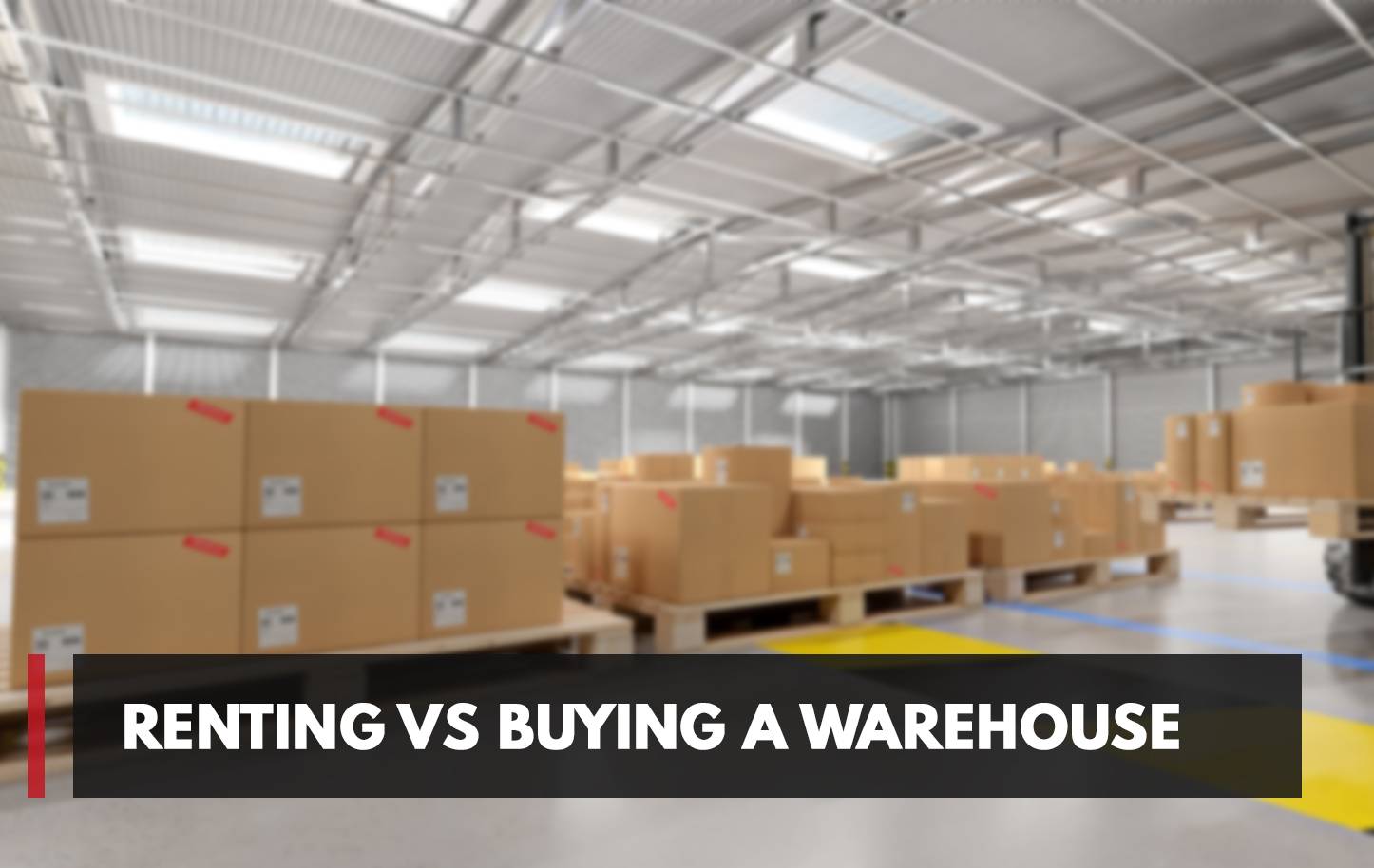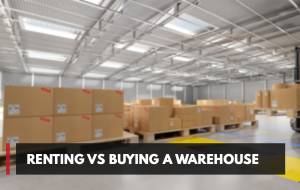
Renting VS Buying A Warehouse
Published At: Mon, 08/16/2021 - 00:04
These days, the faster your business grows, the more urgent the need becomes for a dedicated space to store any raw materials, inventory, and much more business-related stuff you either own or have to hang on to. Depending on your type of business, you might need more than just a random space to store things. You might need some specific facilities with special equipment, including refrigerators, climate control, material handling types of equipment like forklifts, and the list goes on. Many times, this kind of equipped, conditioned, and facilitated space is easy to spot: a warehouse.
What is a warehouse?
A warehouse is a place where your business related materials and your produced goods are stored and processed to be distributed to your customer base. The larger your business and the bigger your product offering are, the bigger your need for a warehouse becomes, as you have a greater quantity of materials to store, arrange, and deliver.
What are the advantages of getting a warehouse?
Getting a warehouse brings more than a single advantage to your business. Besides serving as safe and secure storage space for your materials and products, a warehouse can become a centralized location where you can distribute the already packaged products to your customers.
Moreover, having a warehouse allows price stabilization by providing space to store the goods that are lower in demand. A warehouse becomes a home for the surplus goods you own by storing them until their demand goes up again, and you can make a profit by selling them.
What brings more success to your business than your customer loyalty and trust? Having a warehouse would contribute to improved and advanced customer service. Since many business owners supply their products based on anticipated demand, you will already have your products in a warehouse when a customer makes an order. Having said this, you will save time and directly proceed to the delivery. As a result, your customers will recognize you as a producer with a high-quality delivery service. What’s more, a big enough warehouse will allow for onsite office space to accommodate employees in customer service, accounting, and production. This kind of company community will surely streamline your operations.
Ultimately, a warehouse guarantees a stable space for your materials or products that require certain conditions to be kept in. Therefore, you as a business owner face no risk of dealing with damaged or spoiled products stored elsewhere, thanks to the specialized facilities available in your own warehouse.
Renting VS buying a warehouse
As a business owner, you naturally want to organize your expenses and make your investments return some kind of tangible profit. Obtaining a large commercial space for lease for your business is a strong financial investment. Subsequently, you might take a moment to evaluate the pros and cons of renting versus buying a warehouse to understand what would be the best fit for your business.
First, you must consider the type of business you are involved in, the speed at which its expected to grow, and the anticipated fluctuations it may face in the short and long-term.
This will help you significantly when choosing whether to rent or to buy a warehouse.
Advantages of renting a warehouse.
If you are unwilling or simply not in the position to invest a big amount of capital as you would need to buy a warehouse, renting is right for you.
- Since there are generally more warehouses for lease than for sale, you have more options to choose from. Thus, you will have a more diverse choice of location, size, and commodities.
- When you are renting a warehouse, you take no responsibility for the equipment and facilities available there. Hence, you do not need to pay extra money to purchase the necessary equipment such as an air conditioner and much more.
- It is easier to change your location as your business grows when you are renting a warehouse. You do not need to think of having to expand the building to accommodate any changes or growth. You simply can decide to not renew your lease and move to a different warehouse that will meet the new needs of your growing business.
Disadvantages of renting a warehouse
- You have less control over the property itself since you are not the one who owns it. Any changes to the space typically need approval from ownership.
- Price increases in the warehouse market might cause your landlord to raise asking rent to a higher rent, which will increase your expenses.
- There is limited growth for your business as you can neither customize nor expand the property of your warehouse to accommodate.
Advantages of buying a warehouse
If you are an established business with a loyal customer base, a national and or international presence, and good financials and credit, you might want to buy your own warehouse.
- You will have full control over the property and the equipment of your warehouse.
- You are free of the fluctuations in the warehouse rent market, and there is no need to sacrifice the money you could invest in your business to pay the rent for a warehouse.
- When you own a warehouse, you have an asset. It has an appreciated value that will serve you when needed. This means that you will be able to sell your warehouse at an appreciated value when you are in immediate need of financial resources for your business.
- You can lease out your warehouse whenever you obtain another property. Leasing it out will provide you with a fixed monthly income, which you can use to invest in your business once again.
Disadvantages of buying a warehouse
Purchasing commercial real estate requires a large monetary investment. Liquid assets, strong credit history, and superb business financial references are the start of what is needed to qualify for purchasing a warehouse. Additionally, property taxes, property insurance, and utilities are all part of the expenses you can expect as a commercial property owner.
- The high initial cost you will have to pay to buy a warehouse may make you hesitate whether investing that big amount of money will guarantee a successful continuation of an upward growth.
- When your business grows, and you feel you are outgrowing your space, you will notice relatively less flexibility that owning a warehouse holds. You may need to adhere to zoning laws, city restrictions, and other limitations when it comes to utilizing your space to its fullest extent. Unlike renting a warehouse, you would have to sell your warehouse, which is most likely to take more time and energy from you.
- When you are the warehouse owner, you are the one to take responsibility for all the facilities and equipment in the building. The maintenance of the property is totally up to you, and you have to properly organize the maintenance processes if you want your warehouse to serve you the best.
Final thoughts
Besides carefully reviewing the pros and cons introduced above, make sure you also consider your business's specific needs. Try to be as realistic in your expectations as possible. Before making a choice, make sure to reach out to a commercial real estate agent to learn about the area that you are starting your business in. Get acquainted with the real estate market and take note of costs, inventory, and competition. Take your time and make your choice wisely!


